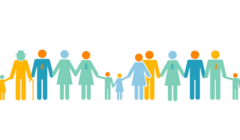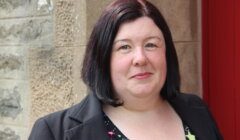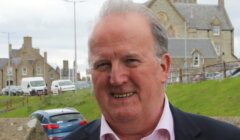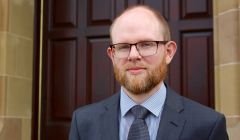Community / Benefits system ‘not fit for purpose’, councillor says in discussion on child poverty
SEVERAL councillors have decried the growing prevalence of child poverty in the isles – with one describing the UK benefits system as “not fit for purpose”.
Recent research showed that an estimated 15.8 per cent of Shetland bairns are living in child poverty – up 2.5 per cent in the past five years – and members of Shetland Islands Council’s (SIC) education and families committee queued up to voice their concern on Monday.
Those figures are only up to 2020, so will not reflect any additional burden caused by the Covid-19 pandemic, which has seen a sizeable rise in demand for food parcels.
While child poverty is relatively low compared to the rest of Scotland, councillor Amanda Hawick said increased deprivation was a huge worry for a community of Shetland’s affluence.
“You look back over the last 40 years, you think ‘how can this be?’” she said.
“I look at the horrifying stats of food banks…and with the economic outfall of the crash of the economy with the pandemic…how many families will be affected?”
Committee chairman George Smith said child poverty was rising all over the country and, while it was a priority for the SIC, addressing the problem was also a matter for government.
“It needs that commitment from the UK Government and the Scottish Government,” Smith said. “Putting more money into folk’s pockets would make that difference. That is the be-all and end-all: if you have money in your pocket you can afford to buy food, if you don’t you’re reliant on food banks.”
Children’s services director Helen Budge said officials were “very concerned about it” and are “seeing families that are really struggling”.
Benefits are set in relation to a national income standard which takes no account of the substantially higher cost of living in Shetland, estimated to be between 20-60 per cent greater than in many mainland areas.
Become a member of Shetland News
Lerwick councillor John Fraser said there continued to be “far too great a stigma that exists surrounding poverty”.
He hoped elected members could get together for a wider discussion about how to “change the language, to remove the stigma, to allow people to recognise that it’s okay not to be okay, and it’s okay to come forward and seek help”.
Fraser said the UK system “simply looks at the net income on the household” to determine whether they qualify for state assistance and as a result “the benefits system is not fit for purpose”.
Council leader Steven Coutts said the cost of living was an “additional challenge” which made creating jobs to counter “the decline of some significant industries”.
“We can’t solve this working in our peerie silos,” he said. “We’re best placed to solve it, but it’s going to take partnership working local but at a government level as well.”
Efforts at a local level include the multi-agency Anchor initiative, working with families on early intervention and prevention, and the promotion of free school meals and clothing awards.
Councillors on Monday heard of progress on the first phase of The Promise project, with £190,000 of Scottish Government funding in place this year as part of efforts to bolster how local authorities look after vulnerable children.
Smith said the approval of funding from two different pots of money – £140,000 in “Promise Diagnostic” investment and £50,000 in “Open Call” investment – represented national recognition that “we’re on the right track”.
Become a member of Shetland News
Shetland News is asking its many readers to consider paying for membership to get additional features and services: -
- Remove non-local ads;
- Bookmark posts to read later;
- Exclusive curated weekly newsletter;
- Hide membership messages;
- Comments open for discussion.
If you appreciate what we do and feel strongly about impartial local journalism, then please become a member of Shetland News by either making a single payment, or setting up a monthly, quarterly or yearly subscription.

















































































